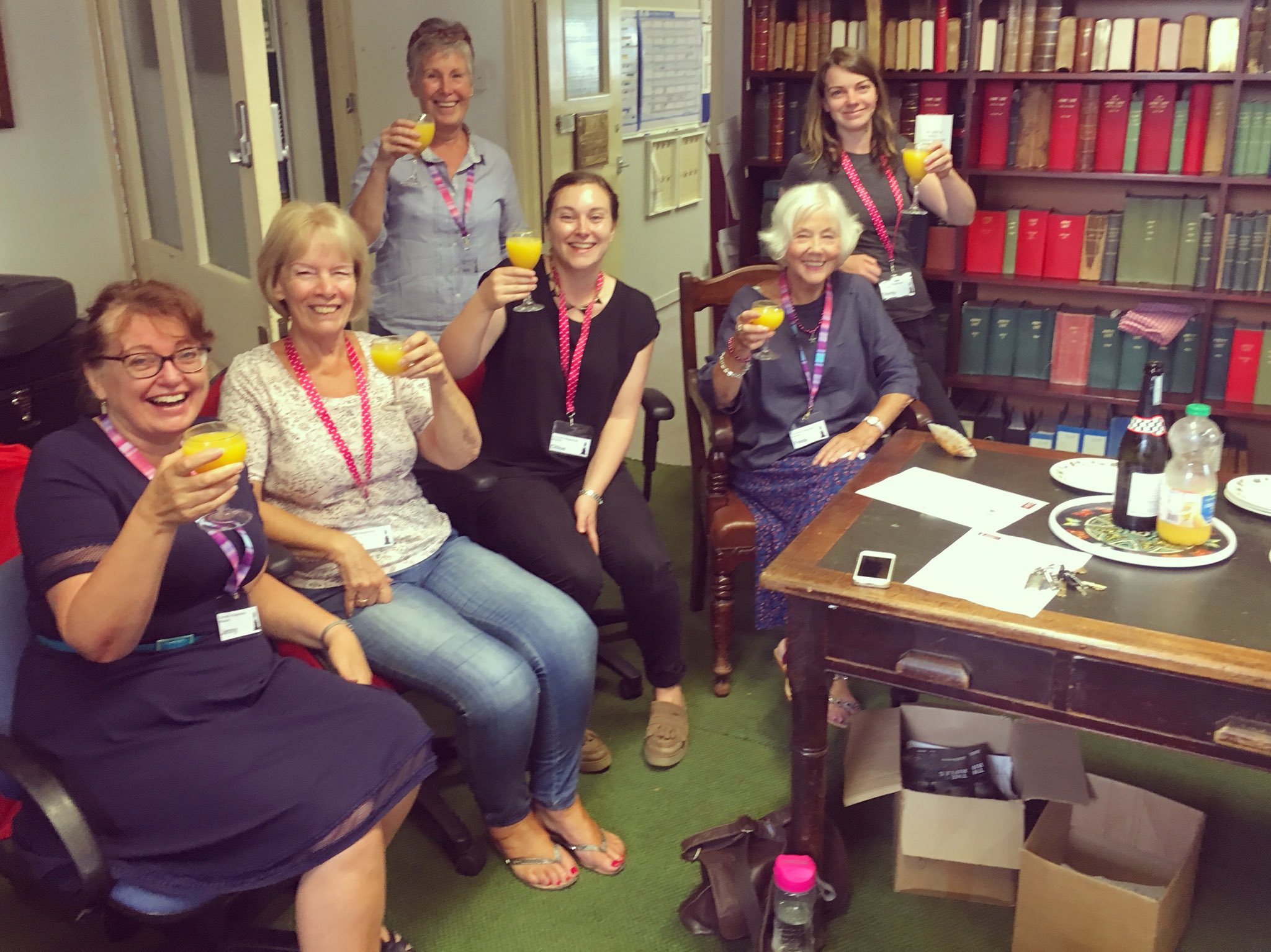Holding a relaxed opening at Cornwall’s Regimental Museum
“Just a few simple adaptations can give a family a visit to remember”

Chloe leading object handling at the relaxed opening (Photo courtesy of @cornwallsregimentalmuseum Instagram)
Relaxed openings have become increasingly common over the past few years. From cinemas to theatres to supermarkets, from the cultural sector to big business increasingly organisations have been thinking about how they can adjust their offer to become more inclusive to people with neuro-diversity.
Inspired by Tom Weir and Mark Barrett’s talk at our recent Brilliant Things conference, we thought that a relaxed opening at Cornwall’s Regimental Museum could be a great way to adapt our usual museum visitor experience.
We settled on a time and date, created a poster, Eventbrite page and advertised our early bird relaxed opening widely. We received lots of encouragement from autism and learning disability support organisations who shared the information through their networks and on social media. We also made a pre-visit guide so that our visitors could gain a better understanding of the space and a guide for parents/carers so they knew what adaptations would be in place. Ticket reservations, though slow at first, picked up steadily in the lead up to the event.
We thought carefully about the adaptions we would make to the museum. We turned off the hand-dryers in the toilets and replaced them with hand towels, we muffled the large bell and cleared the front desk of all but the essential information, we adjusted the lighting (where possible) and turned off the TV screens and music.
Although we made a number of practical adaptions to the visit, we didn’t want to remove the fun from the museum experience. For example, we decided we would leave the bugles and drum for visitors to try and so we warned visitors about this at the start and offered ear defenders to anyone who wanted them. This turned out to be the right decision on the day as all of the family groupings attending had a lot of fun having a go at playing them. We also offered a number of activities that families could take part in as part of their visit. These included two quizzes at easy and more challenging levels, object handling of our collection of First World War Trench Art, craft activities including make your own trench art and medal design as well as a pop-up sensory space.

The sensory space at Cornwall’s Regimental Museum
A warm welcome can really make a visit, and insights from support organisations suggested that this was particularly key for these visitors. We assembled our museum team carefully. We have a number of volunteers who have experience in education or care settings in working with people with special educational needs or disabilities. These volunteers proved invaluable on the day, from being the friendly face on the front desk to leading craft activities to chatting to families and collecting evaluation.
The feedback from visitors was unanimously positive – they loved the quizzes, object handling, dressing up and craft activities not only did the families enjoy these activities, crucially they all helped to slow the children down who may otherwise have ‘raced’ through the visit. Our pop-up sensory space was a big hit, this provided a relaxing space for everyone and helped increase the dwell time in the museum as families could retreat to the space as necessary. We also had lots of lovely comments about how friendly and welcoming the museum team were.
We focused a lot on making a great visit for people with sensory processing disorders, but we had great feedback from accompanying parents, grandparents and siblings too. The relaxed opening meant that everyone could enjoy the visit at a pace that worked best for them.
We’ve already begun planning for the next one and are now integrating this quarterly into our regular programming. And we’re not alone – Royal Cornwall Museum are holding their relaxed opening this week and other museums involved in our NPO programme are also developing new activities for these audiences too.
One of our visitors shared on leaving “Thank you. We simply wouldn’t have been able to come here if you hadn’t had done this” – when just a few simple adaptations can give a family a visit to remember the question really is why not?

Staff and volunteers celebrate a brilliant first relaxed opening
Chloe Hughes, Engagement Lead – and Verity Anthony, Visitor Experience and Collections Manager at Cornwall Regimental Museum


xxxxxxxxxxxxxxxxxxxxxx
Thanks to Chloe for permission to add this blog to the Autism in Museums website. This blog originally appeared on the Cornwall Museums Partnership website – https://www.cornwallmuseumspartnership.org.uk

Comments 1
Brilliant! Was the relaxed opening during regular hours, earlier, or on a day when the museum was normally closed?